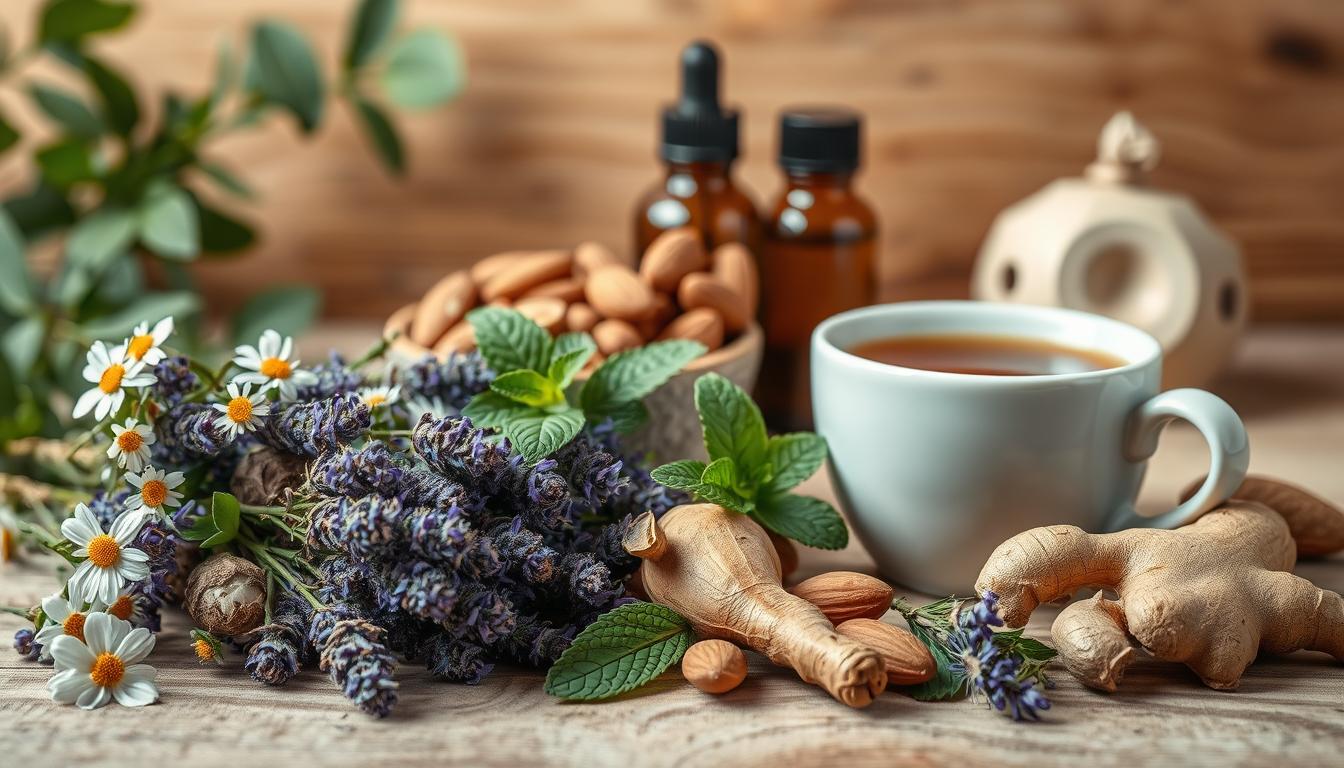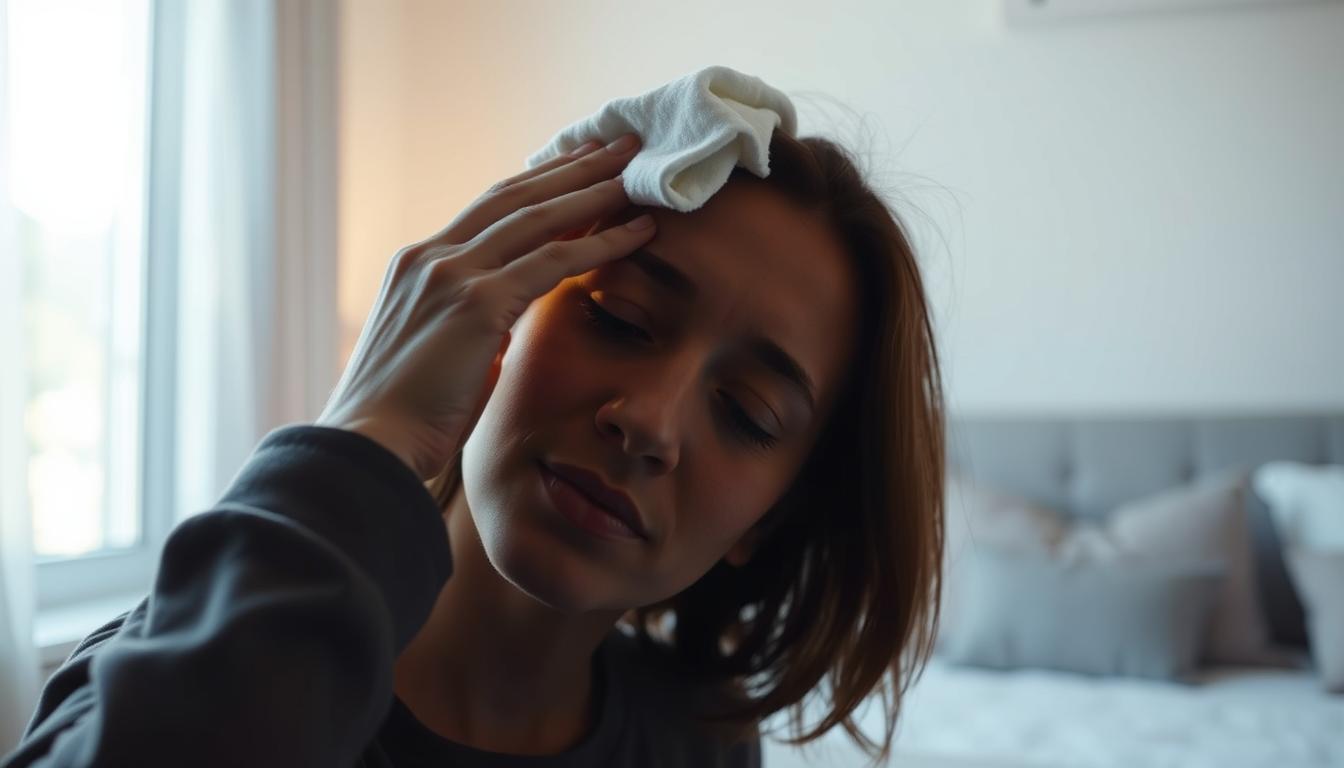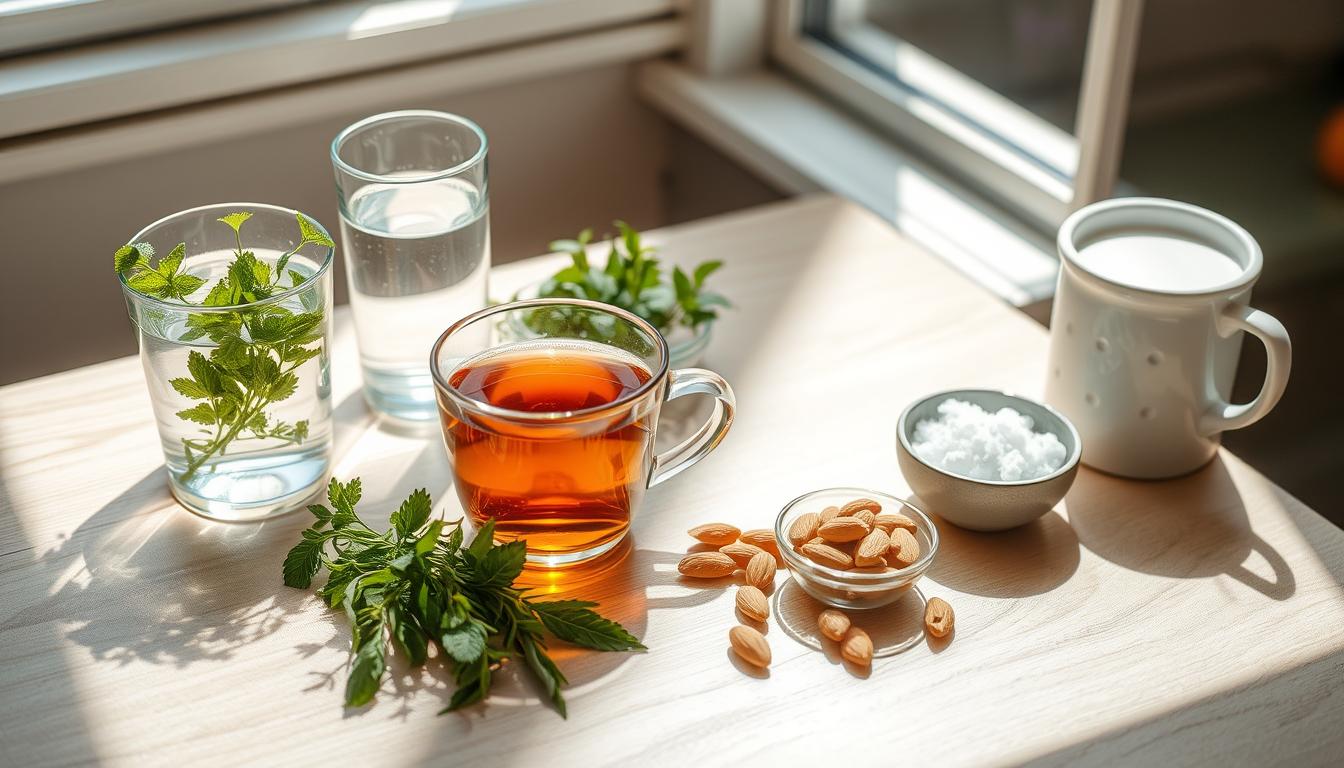Chronic headaches can really mess up your day and make you feel tired. Instead of reaching for medicine, try natural remedies for managing mild headache symptoms at home.

Knowing what causes your headaches is key. It could be stress, tension, or too much screen time. By looking into natural headache remedies and home treatments for headaches, you can start living better.
Key Takeaways
Identify common triggers of chronic headaches
Explore natural remedies for headache management
Discover home treatments for mild headache relief
Learn how to manage stress and tension
Understand the benefits of natural approaches to headache relief
Understanding Chronic Headaches and Their Common Triggers
For those with chronic headaches, knowing the causes and triggers is key to feeling better. Chronic headaches are more than just a minor problem. They can really affect your life.
What Defines a Chronic Headache?
Chronic headaches are defined as having headaches on at least 15 days each month for a period of three months, with each episode lasting four hours or longer. Each headache must last four hours or more. These headaches can be signs of a bigger issue or caused by stress, tension, or lifestyle choices.
Common Triggers You Should Know
Knowing what triggers your headaches is important for managing them. Many things can start a headache.
Stress and Tension Factors
Stress is a big headache trigger. High stress can make your neck and scalp muscles tight, causing pain.
Dietary and Hydration Influences
What you eat and drink can also cause headaches. Not drinking enough water and eating certain foods can lead to pain in some people.
Environmental and Lifestyle Contributors
Triggers such as bright lighting, loud sounds, or changes in the weather can set off headache episodes. Poor sleep and not being active enough can also make headaches worse.

The Importance of Natural Approaches to Headache Management
Using natural ways to manage headaches can help without medication. By understanding and dealing with the triggers, you can reduce how often and how bad your headaches are.
How to Get Mild Relief from Headaches Naturally with Immediate Remedies
You don’t have to let chronic headaches control your day. There are many natural ways to get quick relief. Taking action fast can greatly improve your comfort and ability to do things.
Hydration Techniques for Quick Relief
Drinking enough water is a simple yet effective way to ease headache symptoms. Dehydration often triggers headaches. So, it’s key to drink at least eight glasses of water a day. If you’re active or live in a hot place, drink more.
Temperature Therapy: Cold and Warm Compresses
Temperature therapy can quickly ease headache pain. You can use cold or warm compresses, depending on your headache type.
When to Use Cold Therapy
Cold therapy works well for migraines and tension headaches. A cold compress on your forehead, neck, or shoulders can lessen pain and swelling. Applying a cold compress or a chilled, damp cloth to your head for 15 to 20 minutes may help ease headache pain.
When to Use Heat Therapy
Heat therapy is better for tension headaches from muscle strain. A warm compress on your neck and shoulders can relax muscles and improve blood flow. Use a warm washcloth or a heating pad on low for 15-20 minutes.

Essential Oils and Aromatherapy Applications
Essential oils can be a powerful tool against headache pain. Some oils have anti-inflammatory, pain-relieving, and calming effects that can ease headache symptoms.
Most Effective Oils for Headache Relief
Lavender, peppermint, and eucalyptus oils are often used for headaches. Lavender oil can help you relax and reduce stress. Peppermint oil can ease tension and improve blood flow. Eucalyptus oil can help with sinus pressure.
Application Methods for Maximum Benefit
To maximize essential oils, use them in a diffuser, apply them to your temples or wrists (diluted), or inhale them from a cloth. Always choose high-quality, pure essential oils.
Herbal Teas and Natural Drinks
Herbal teas and natural drinks can also help with headache pain. Some herbs have anti-inflammatory and calming effects that can soothe headaches.
Calming Herbal Preparations
Teas like chamomile, ginger, and feverfew are calming. Drinking chamomile tea may help soothe stress and encourage a sense of calm. Ginger tea can help with nausea from migraines.
Anti-inflammatory Natural Beverages
Drinks like green tea and turmeric tea have anti-inflammatory properties. Green tea is full of antioxidants. Turmeric contains curcumin, which is anti-inflammatory.
Mind-Body Techniques for Managing Headache Pain
You can ease headache symptoms by adding simple mind-body practices to your day. These methods not only lessen headache pain but also boost your overall health.
Breathing Exercises to Reduce Pain Intensity
Breathing exercises are a strong tool against headache pain. Deep breathing exercises help relax both the mind and body by bringing your attention to each breath.
Deep Breathing Techniques
Deep breathing is about taking slow, deep breaths that fill your lungs. It promotes relaxation. To do it, sit comfortably, breathe in deeply through your nose, pause for a few seconds, and then breathe out slowly through your mouth.
Rhythmic Breathing Patterns
Rhythmic breathing adds to relaxation. Try breathing in for a count of four, holding for four, and breathing out for four. This pattern can soothe your nervous system.

Guided Relaxation and Meditation Practices
Guided relaxation and meditation are great for easing headache pain. They guide your mind to relax, lowering stress and tension.
Body Scan Meditation for Headache Relief
Body scan meditation has you lie down or sit comfortably. Focus on different body parts, releasing tension as you breathe out. It helps you notice and release body tension.
Visualization Techniques
Visualization is about imagining a peaceful scene. By vividly picturing this scene, you can distract yourself from pain and relax.
Gentle Movement and Stretching
Gentle movement and stretching are key in managing headache pain. These exercises help reduce physical tension, a common headache cause.
Neck and Shoulder Releases
Neck and shoulder releases involve gentle stretches to loosen tight muscles. These areas are common tension points that can lead to headaches.
Whole-Body Relaxation Movements
Whole-body relaxation movements, like yoga or tai chi, improve flexibility and relaxation. They help reduce headache frequency and intensity.
Lifestyle Adjustments for Long-Term Headache Prevention
To keep headaches away for good, making some simple changes is key. These changes can stop chronic headaches and make life better.
Creating a Headache-Friendly Home Environment
Your home’s setup is crucial for avoiding headaches. A few tweaks can make your space more relaxing and less likely to trigger headaches.
Lighting and Sound Considerations
Soft, natural light can ease eye strain and calm you down. Think about using dimmable bulbs or smart lights. Also, cut down on loud sounds with soundproofing or headphones.
Air Quality and Temperature Control
Good air and a comfy temperature are also important. Air purifiers can clear out allergens and pollutants. Keep your home between 68-72°F (20-22°C) for comfort.
Daily Habits to Prevent Chronic Headaches
Healthy daily habits are key to avoiding chronic headaches. Simple routines can lower how often and how bad your headaches are.
Sleep Hygiene Improvements
Stick to a sleep schedule and avoid caffeine and screens before bed. Following a relaxing routine before bed can help enhance the quality of your sleep.
Posture Correction Techniques
Good posture is important. Make time for stretching, choose ergonomic seating, and be aware of your posture throughout the day.
Screen Time Management
Follow the 20-20-20 rule. Every 20 minutes, look away from screens and focus on something 20 feet away for 20 seconds.
Dietary Adjustments for Headache Prevention
Changing what you eat can also help prevent headaches. Drink lots of water and avoid foods with MSG, tyramine, or artificial sweeteners.
Maintain steady blood sugar levels by eating well-balanced meals at consistent times.
Incorporate foods high in magnesium—such as dark leafy greens, nuts, and seeds—into your daily meals.
Avoid skipping meals or going extended periods without eating.
When to Seek Medical Attention vs. Continue Home Treatment
While home remedies and lifestyle changes work well, sometimes you need medical help. If you have a sudden, severe headache, headache with fever, confusion, or stiff neck, or if your headache gets worse, get medical help.

Conclusion: Embracing Natural Headache Relief as Part of Your Self-Care Routine
Adding natural headache remedies to your daily life can help manage chronic headaches. Techniques like staying hydrated, using temperature therapy, and practicing mind-body exercises offer a complete approach to easing headaches at home.
By using these natural methods, you can lessen your need for medication. Prioritizing self-care in your daily routine empowers you to take better control of your overall well-being. This improves your overall well-being.
Begin by adding one or two of these methods to your routine. Build your self-care routine step by step until it becomes a complete and supportive plan. Over time, you’ll find the best natural ways to relieve headaches and enjoy better health.



GIPHY App Key not set. Please check settings